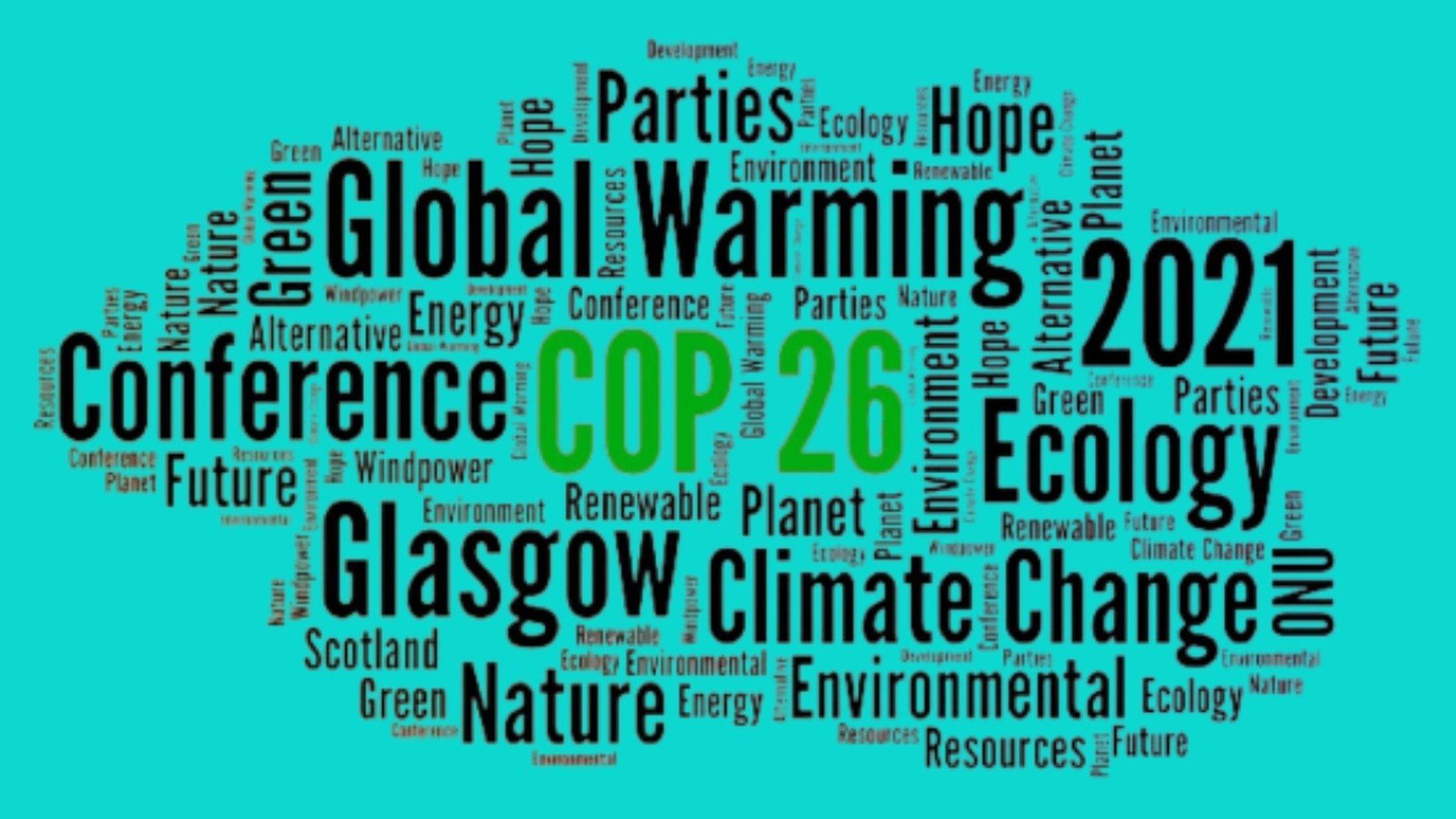COP 26: Everything you need to know about the climate conference
- Published
- comments
What is COP26? Shanequa is here to take you through it all!
"If we don't act now, it will be too late." That was the warning from Sir David Attenborough ahead of the COP26 climate conference in Glasgow.
More than 25,000 people - including world leaders, government negotiators and the public - will be in the Scottish city for what the United Nations has described as "the world's best last chance to get climate change under control".
It's taking place from 31 October to 12 November and could lead to major changes in how we live our everyday lives.
Here is your big guide to EVERYTHING on COP26.
What is COP26?
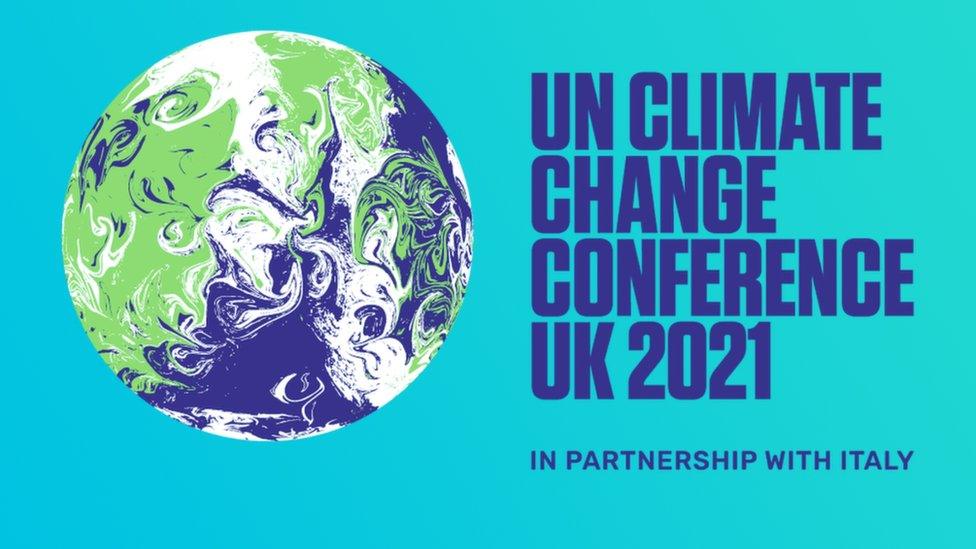
The official poster for the rescheduled COP26 summit
For almost three decades, world governments have been coming together, almost every year, to make plans on how to tackle the growing climate change crisis.
COP stands for 'Conference of the Parties', and is attended by countries that signed the United Nations Framework Convention on Climate Change (UNFCCC).
That was a legally binding agreement made in 1992 when countries committed to avoiding any behaviours that could lead to "dangerous climate change".
The 2021 meeting in Glasgow is the 26th meeting, which is why it's called COP26. It should have taken place last year but was postponed due to the coronavirus pandemic.
Why is COP 26 important?
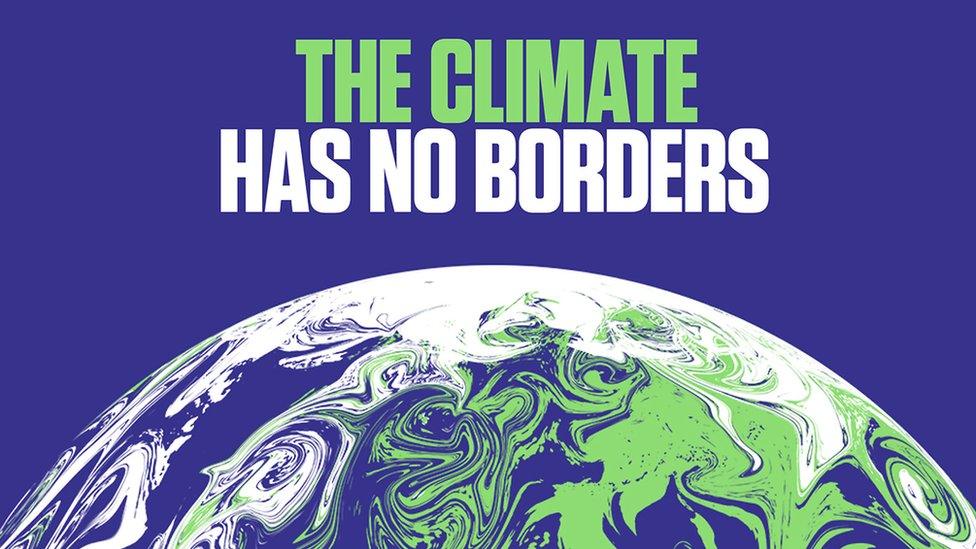
This COP26 campaign poster stresses the fact that countries need to work together to fight climate change
You've probably heard the term climate change quite a lot.
When we talk about climate change, we are talking about global changes in the Earth's average temperature.
The Earth's average temperature normally moves up and down naturally, but recently it has been increasing more rapidly than it usually does.
The rapid climate change we are now seeing is caused by humans using oil, gas and coal for their homes, factories and transport.
When these fossil fuels burn, they release greenhouse gases including carbon dioxide. These gases trap the Sun's heat and cause the planet's temperature to rise.
Extreme weather events linked to climate change - including heatwaves, floods and forest fires - are becoming a much more regular occurrence.
The past decade was the warmest on record, and governments agree collective action is needed urgently.
What are the big talking points at COP26?
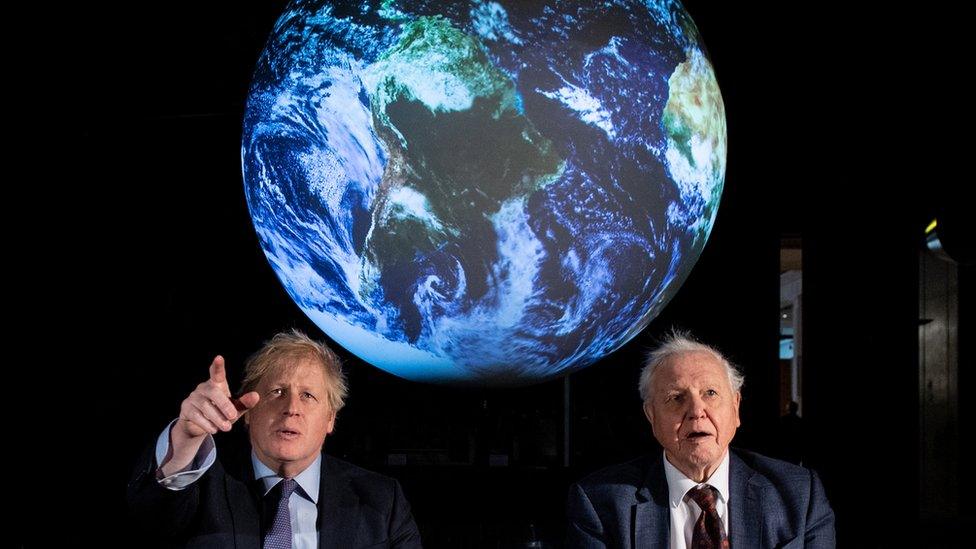
The UK's Prime Minister, Boris Johnson (pictured, left) alongside broadcaster Sir David Attenborough
Two hundred countries are being asked to show their plans for cutting emissions by the year 2030.
In 2015, they all agreed to make changes in order to try to slow global temperatures rises. Specifically, they promised to limit any global temperature increases to 1.5 Celsius.
This promise is known as The Paris Agreement and it means that countries have to keep cutting emissions until reaching 'net zero' in 2050.
Lots of the talking points during the conference are very technical but, according to the BBC's science team, the talks could lead to some massive changes, including:
Making a faster switch to electric cars
Speeding up the process of stopping coal power
Cutting down fewer trees
Protecting more people from the impacts of climate change, such as funding coastal-defence systems.
Will there be disagreements at COP26?
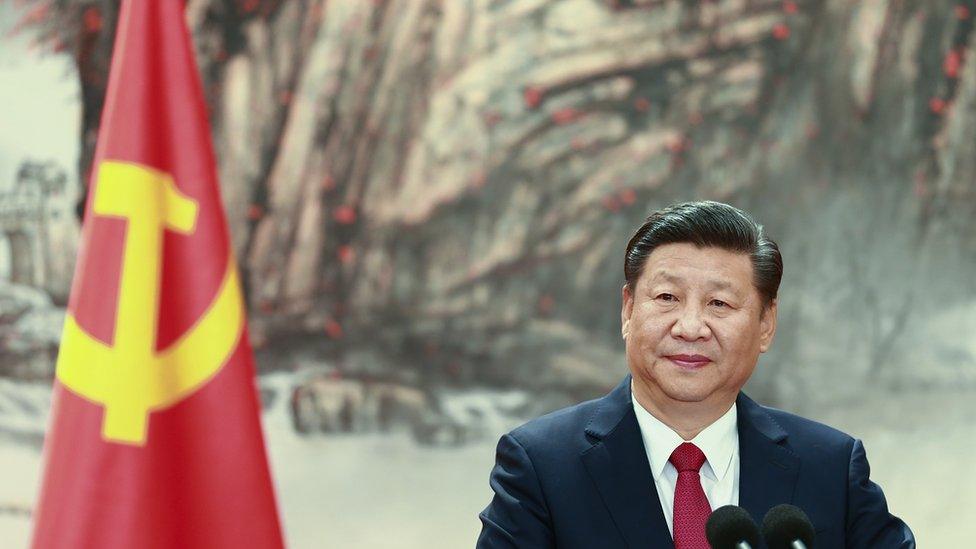
The President of China, Xi Jinping, won't be at COP26
There are some really important world leaders who are not at COP26.
At the last COP meeting in 2019, the heads of the world's top five emitters - China, India, Japan, US and Russia - didn't attend.
China's President Xi Jinping is not in Glasgow for the conference.
That's despite China being the biggest emitter of carbon in the world.
There are worries that it will be hard to make big decisions on climate change without the leaders of these major emitters being present.
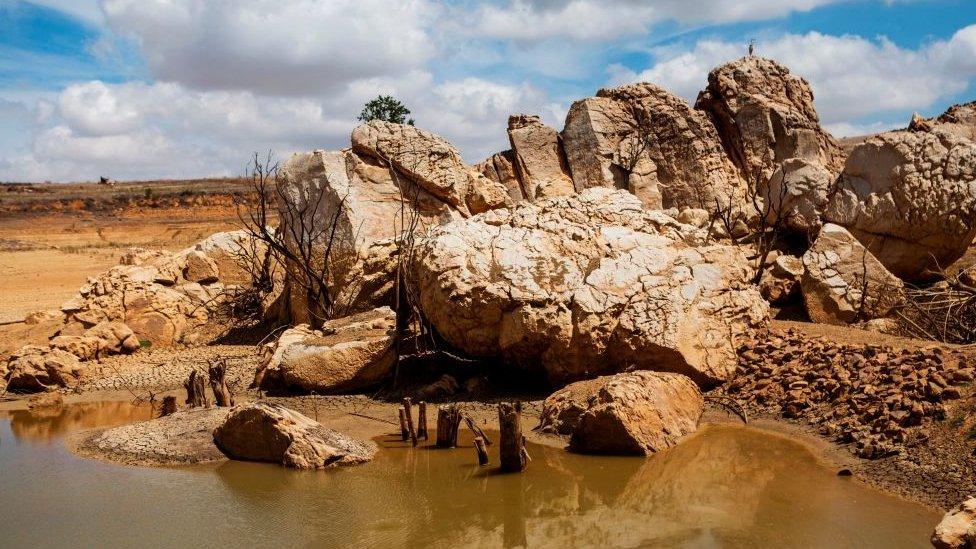
Africa is the continent most affected by climate change
Also, expect there to be lots of talk about developing countries who are not responsible for a lot of the emissions in the past.
Africa has been the least polluting continent in the world - except for Antarctica - but is the most likely to be affected by climate change.
It is argued that these countries need money to help reduce their emissions and to cope with global warming.
In 2009, wealthy countries pledged £720 million a year to help poorer nations by 2020. However, this goal has still not been met and could now move to 2023.
Who is at COP26?
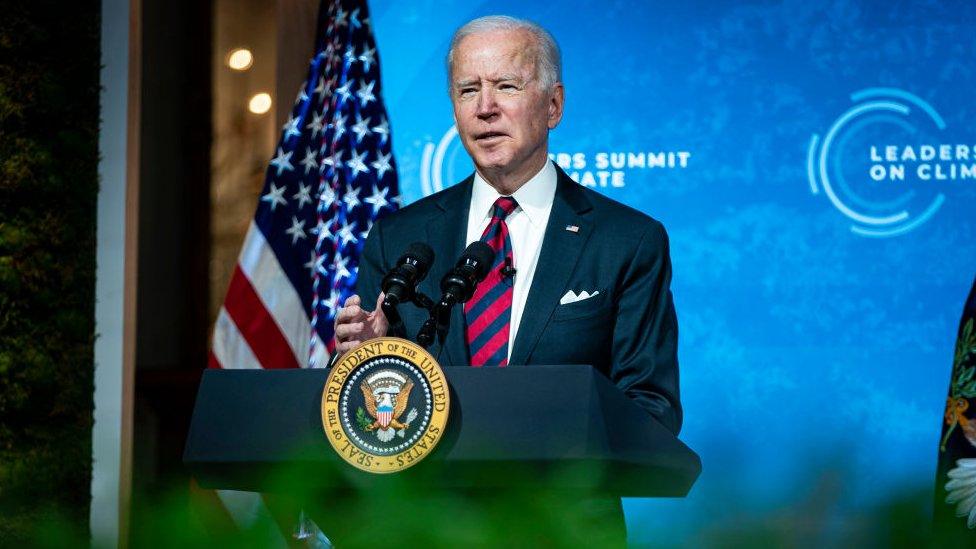
US President Joe Biden is among the world leaders at the event
Some of the most important leaders in the world have been in Glasgow for the conference, including British Prime Minister Boris Johnson and American President Joe Biden.
The Queen was expected to make an appearance on Monday 1 November to officially open the event but she pulled out due to ill health. She delivered her message via video.
Climate protests at COP26
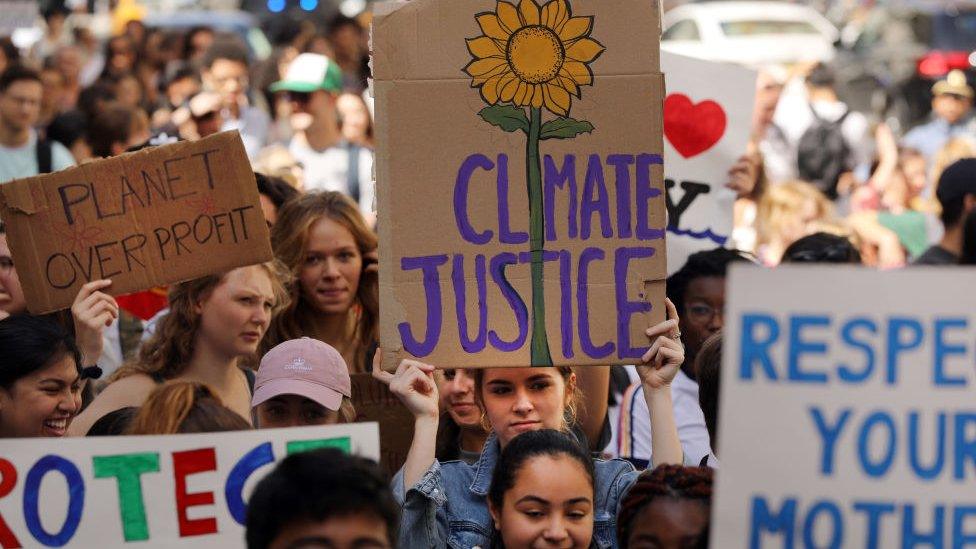
Saturday 6 November has been given the name the Global Day for Climate Justice.
Thousands of people from lots of climate campaign groups and members of the public took part in protests.
There was also a School Strike for Climate march in Glasgow on Friday 5 November.
Martin speaks to kids at the protest march at COP26
Greta Thunberg at COP26
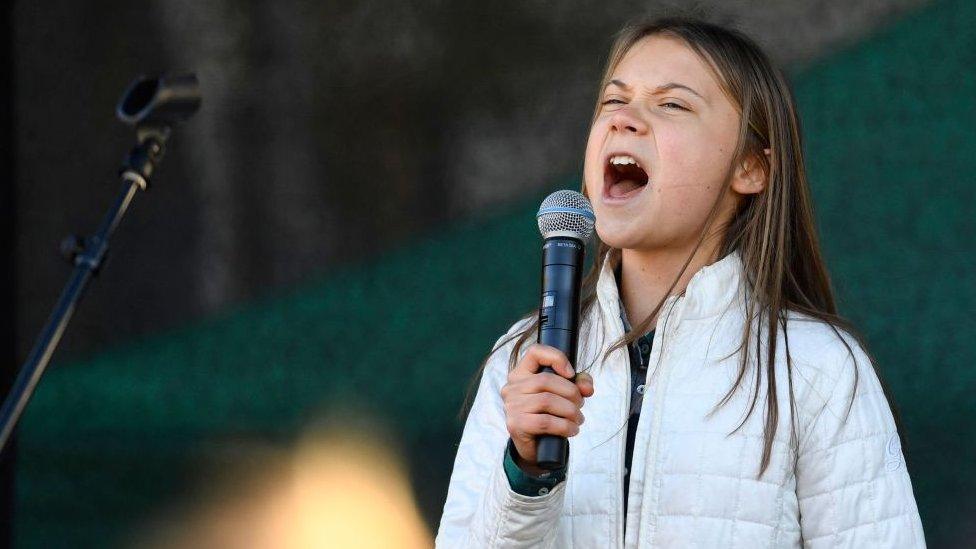
Greta Thunberg was in Glasgow to take part in the march on Friday 5 November.
The Climate Strike has been organised by Fridays for Future Scotland, which was founded by young people inspired by Greta's activism.
She made a speech to the crowd calling on world leaders to do more and said COP26 was going to be a "failure" and leaders needed to "wake up".
What can the public do at COP26?
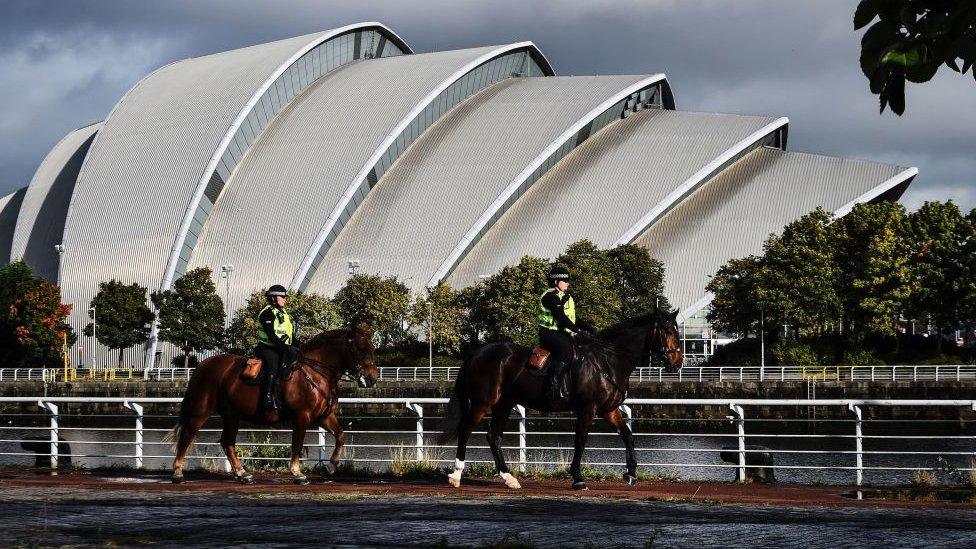
COP26 is taking place at the SSE Hydro venue in Glasgow
COP26 is taking place at the SSE Hydro venue in Glasgow.
The venue has been split into two zones during the conference: The Blue Zone and The Green Zone.
The Blue Zone is where all the big decisions are going to be made.
It will be mainly full of world leaders and government negotiators trying to work through the big decisions on the climate.
The Green Zone will be open to the public at the Glasgow Science Centre, between 1 November and 12 November, and tickets are free.
There will be more than 200 events in The Green Zone during that time led by youth groups, academics, artists and businesses from all over the world.
There will be loads of musical talent on show during the two weeks: for example, the RSNO Junior Chorus who will perform songs inspired by climate change.
There's also Musicians In Exile, Glasgow's asylum seeking and refugee musicians, who will perform music from their native countries and songs about climate change's impact on refugees.
What is Sir David Attenborough's role at COP26?
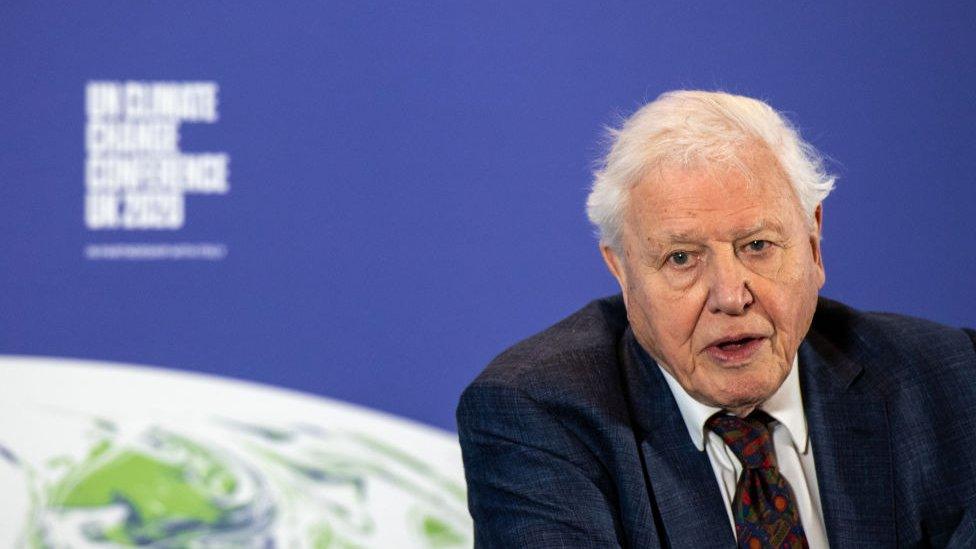
Environmentalist Sir David Attenborough is the People's Advocate of COP26.
This means it will be his job to address political leaders about why action is needed to prevent the major consequences of climate change.
Speaking to the BBC ahead of the conference, the broadcaster said: "If we don't act now, it'll be too late.
"Every day that goes by in which we don't do something about it is a day wasted.
"Particularly if it's going to cost money in the short term, the temptation is to deny the problem and pretend it's not there."
Young people to watch out for at COP26
There are loads of inspiring young people at the climate conference in Glasgow.
Take a look at some of the amazing people attending in our interactive guide.
If you cannot see the interactive activity on this page, click here.
- Published31 October 2021
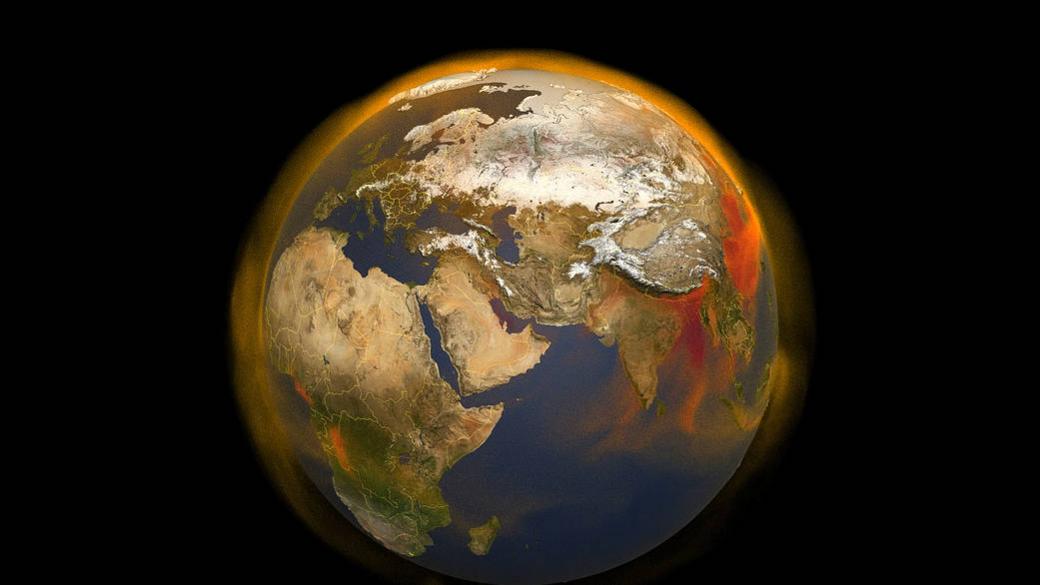
- Published1 November 2021
